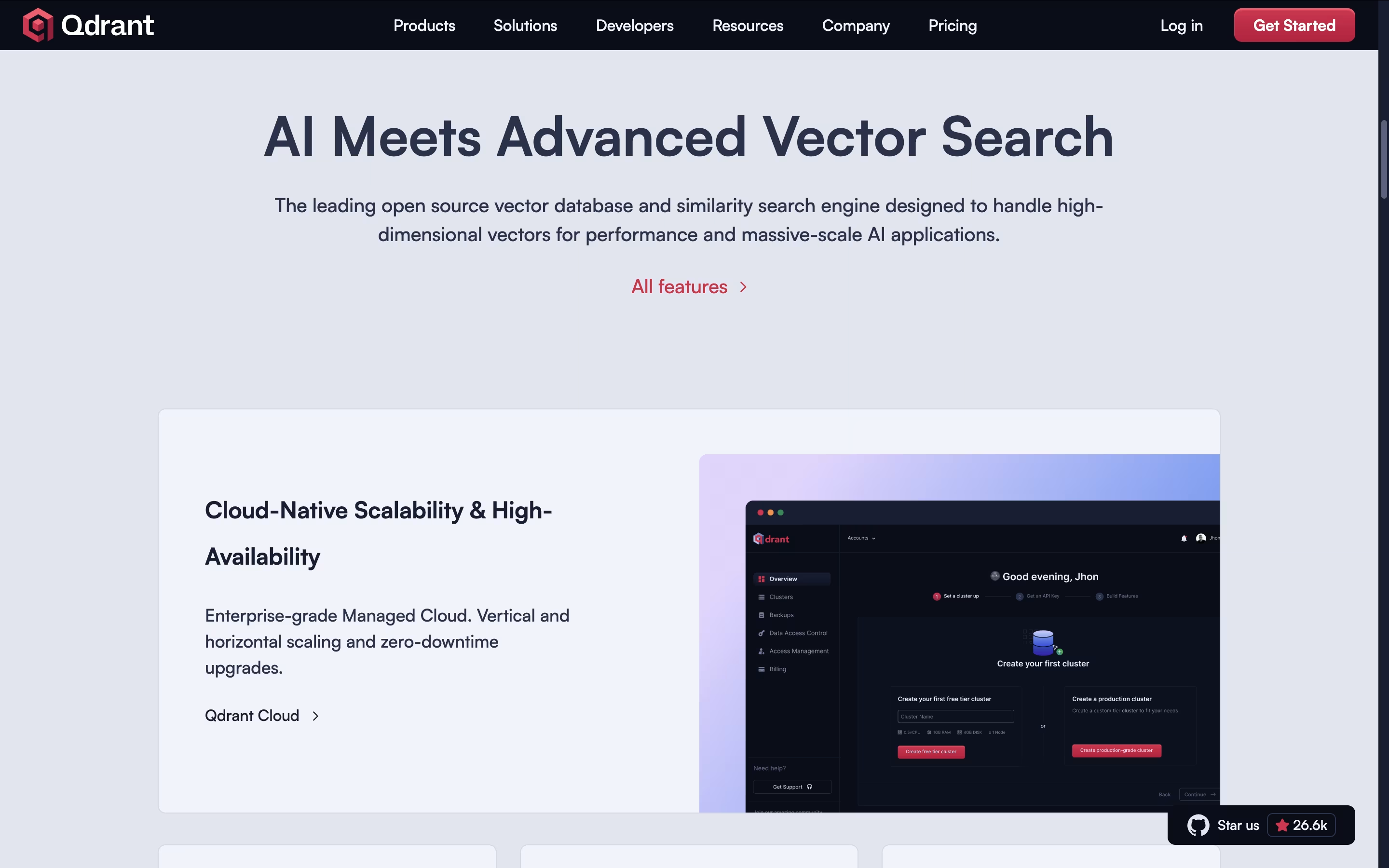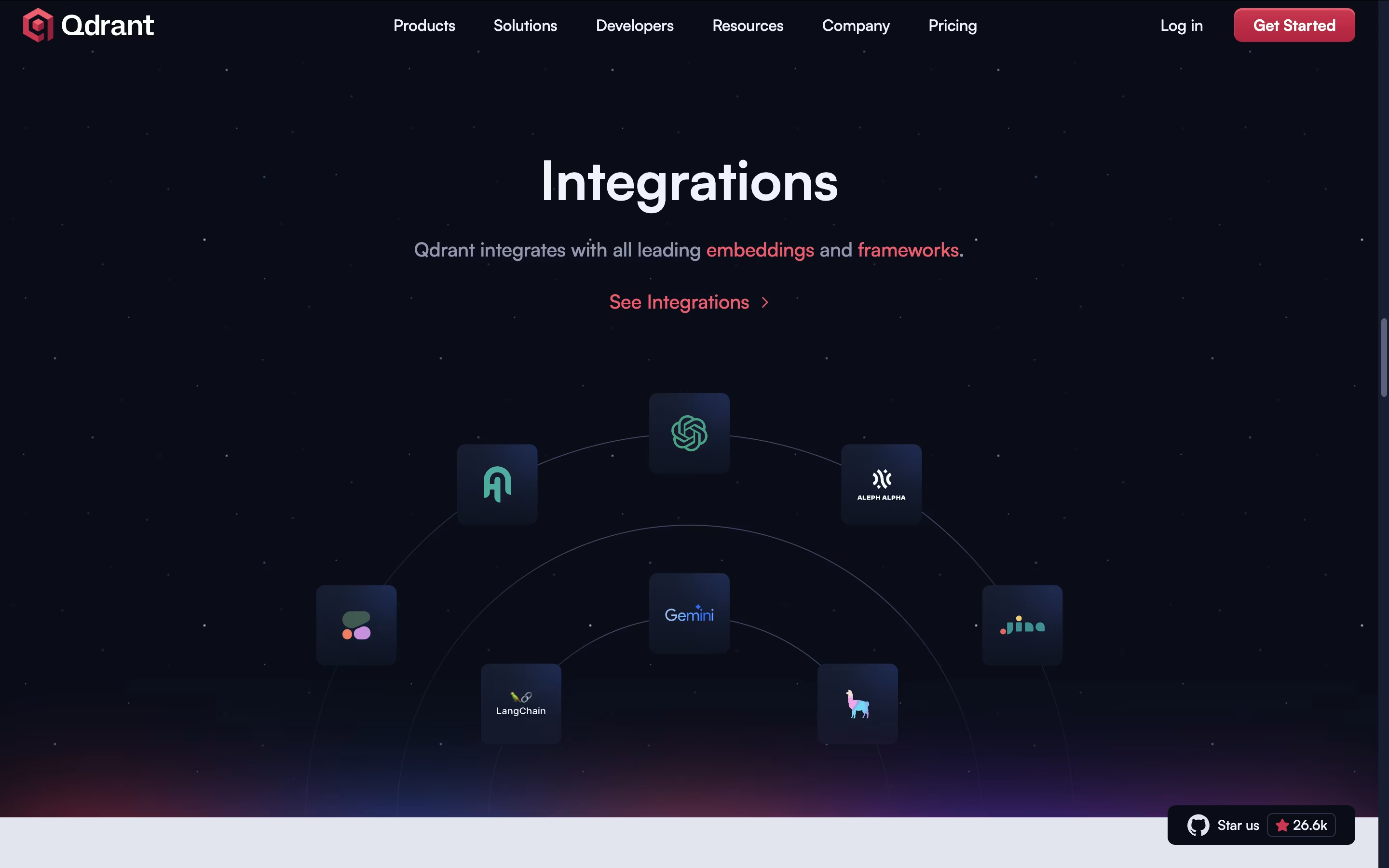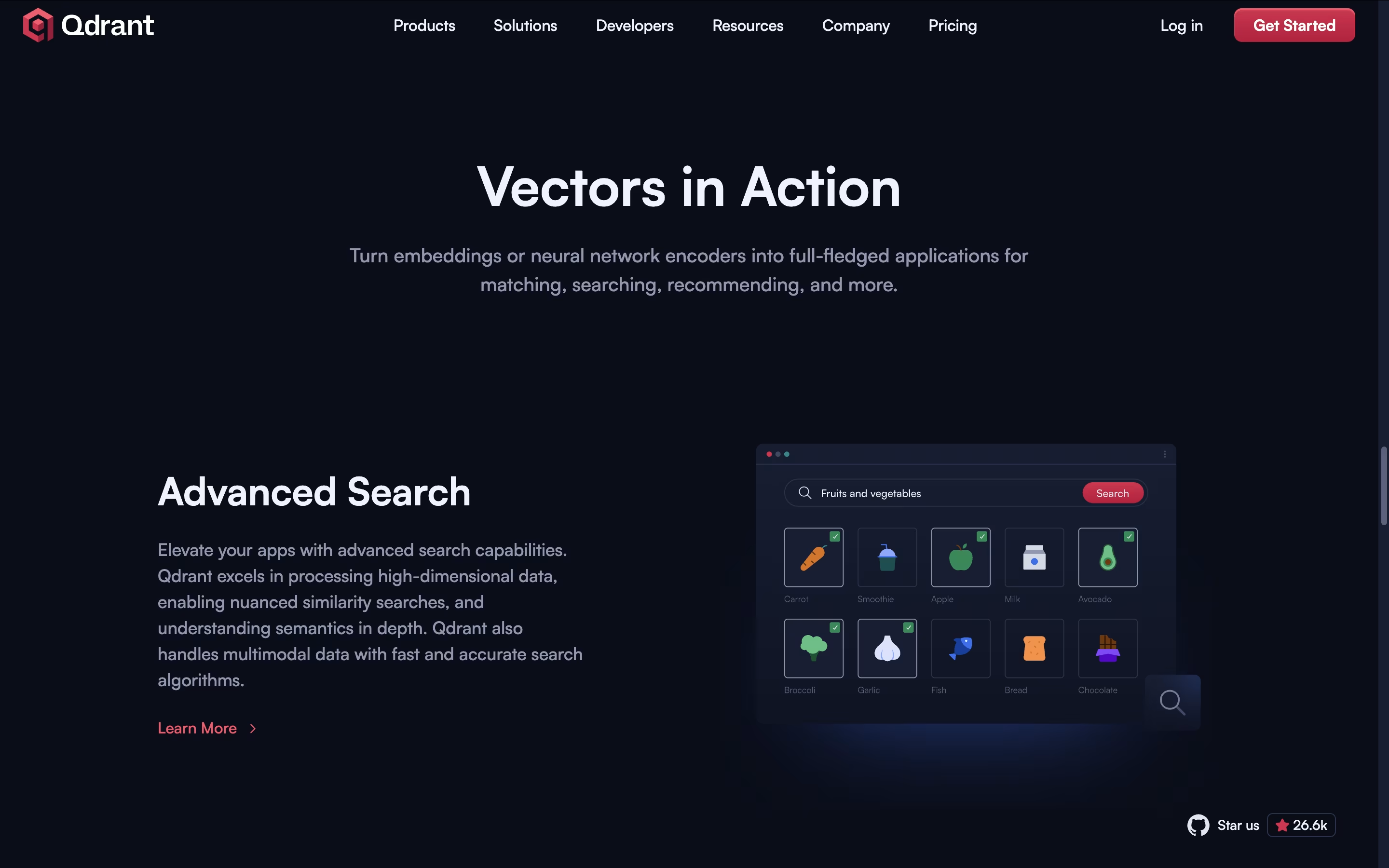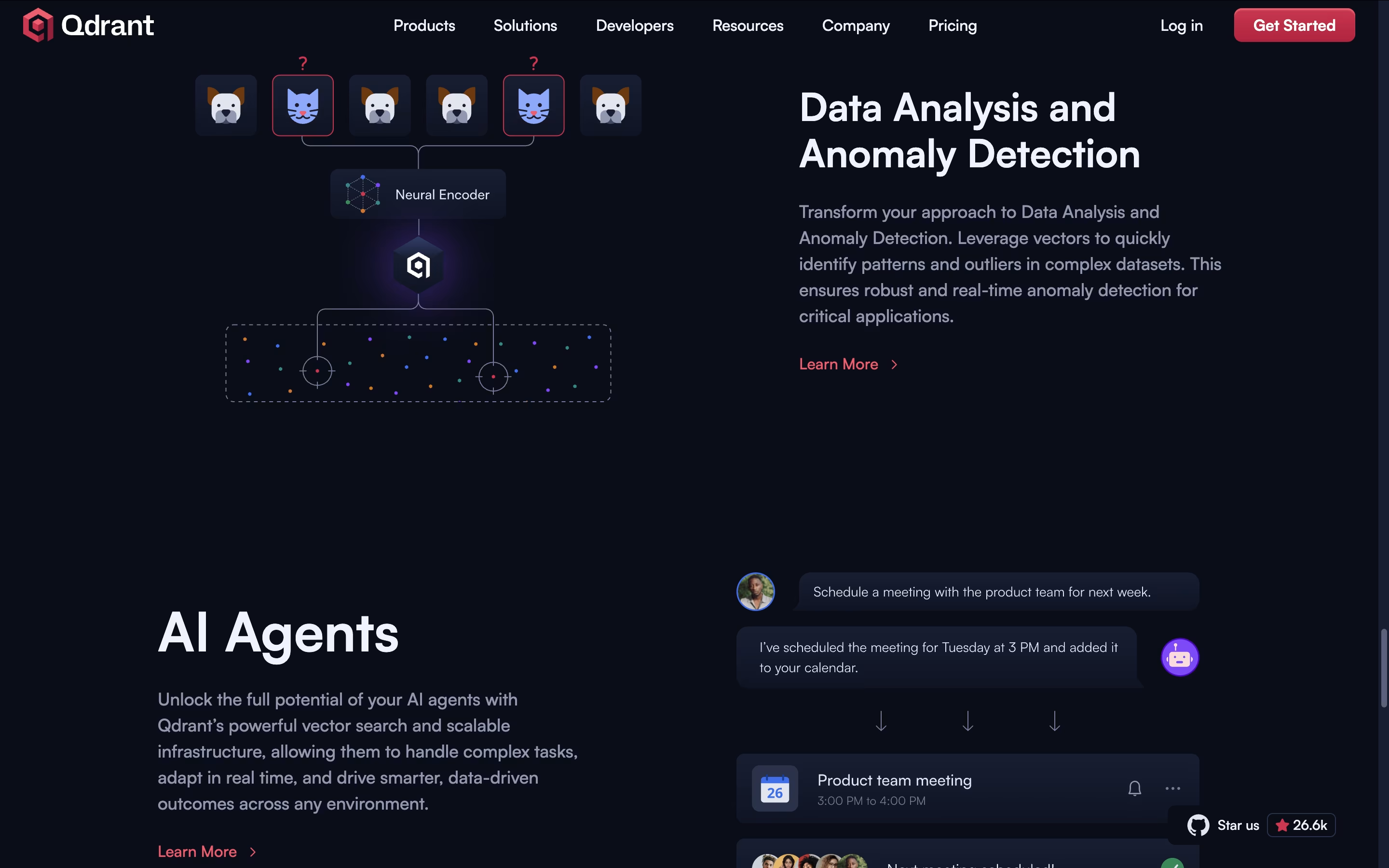
Qdrant
Qdrant is an open-source vector database built in Rust that delivers fast, scalable similarity search for AI applications.





What is Qdrant
Qdrant is a vector database that stores and searches high-dimensional data using advanced technology. Unlike traditional databases that store exact text or numbers, Qdrant works with vectors—mathematical representations of complex information. This makes it perfect for finding similar items based on meaning rather than exact matches.
The database uses a special algorithm called HNSW that makes searches incredibly fast, even with billions of data points. It supports different ways to measure similarity between items, including options for text, images, and other data types.
Qdrant includes features like data compression to save memory, filtering to narrow down results, and the ability to scale up as your needs grow. You can use it through a simple web interface or integrate it directly into your applications using various programming languages.
How to Use Qdrant
Getting started with Qdrant is straightforward. Here are the steps to begin:
Sign up for free: Visit the Qdrant website and create a free account. You get a 1GB cluster without needing a credit card. This is enough for testing and small projects.
Install locally: For development work, you can run Qdrant on your computer using Docker. Just one command downloads and starts the database on your machine.
Create a collection: Collections hold your vectors. Choose the size of your vectors and which distance formula to use. Common choices include cosine similarity for text and euclidean distance for images.
Add your data: Upload vectors along with any extra information you want to store. You can include details like text, categories, or timestamps.
Search and filter: Run searches to find similar items. You can combine similarity search with filters to get precise results based on your criteria.
Features of Qdrant
Fast vector similarity search with HNSW indexing
Written in Rust for speed and reliability
Multiple distance metrics (cosine, dot product, euclidean)
Advanced filtering and full-text search
Quantization for memory efficiency
Horizontal and vertical scaling
Cloud-managed and self-hosted options
Integration with popular AI frameworks
Real-time data updates
High availability and disaster recovery
API support for Python, JavaScript, Rust, Go
Open-source with active community
Qdrant Pricing
Free
Free
- 1GB cluster forever free
- No credit card required
- Unlimited basic searches
- Core vector search features
- Community support
- Access to all distance metrics
- Basic filtering capabilities
- REST API and gRPC access
Managed Cloud
Custom
- Starts with 1GB free cluster
- Pay only for what you use
- Multiple cloud providers (AWS, GCP, Azure)
- Fully managed with central cluster management
- Horizontal and vertical scaling
- Central monitoring and log management
- High availability and auto-healing
- Backup and disaster recovery
- Zero-downtime upgrades
- Unlimited users
Hybrid Cloud
$0.014
- Bring your own infrastructure
- Works with any cloud provider or on-premise
- All benefits of Managed Cloud
- Enhanced security and data isolation
- Optimal latency for your location
- Use Managed Cloud Central Cluster Management
- Standard support and uptime SLAs
- Can be upgraded to Premium support
Private Cloud
Custom
- Fully on-premise deployment
- All benefits of Hybrid Cloud
- Maximum control and data sovereignty
- Manage clusters on your infrastructure
- Deploy in cloud, on-premise, or at edge
- Fully air-gapped option available
- No connection to Qdrant Cloud required
- Premium support plan available
- Custom pricing based on needs
Who Can Benefit from Qdrant
Qdrant Repository
View on Github| Stars | 26,722 |
| Forks | 1,865 |
| Repository Age | 5 years |
| Last Commit | 3 months ago |
FAQ's About Qdrant
Share your experience with Qdrant
See what users are saying about Qdrant
0 Reviews
No reviews yet
Be the first to review Qdrant
Embed Qdrant badges
Show your community that Qdrant is featured on Tool Questor. Add these beautiful badges to your website, documentation, or social profiles to boost credibility and drive more traffic.










